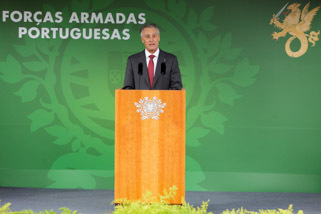

The Presidency of the Republic divulges the following informative note:
Since journalists and politicians have lately shown interest in obtaining information concerning the number of meetings of the Council of State during the mandate of the current President of the Republic and the mandates of the former holders of this office, the Presidency of the Republic advises as follows:
1 – In his mandate as President of the Republic, General António Ramalho Eanes called 11 meetings of the Council of State, specifically for the preparation of the Regulation of that same Council, for the dissolution of Parliament, for the discharge of the Government and for issues relating to Timor and Macau.
2 – During the period when Dr. Mário Soares was in office as President of the Republic, there were 17 meetings of the Council of State, 13 in the first mandate and 4 in the second.
3 – During the period when Dr. Jorge Sampaio was in office as President of the Republic, there were 22 meetings of the Council of State, 12 in the first mandate and ten in the second.
4 – Of the total 39 meetings of the Council of State during the mandates of Dr. Mário Soares and Dr. Jorge Sampaio, and as was then made public, 16 (that is, 41%) related to issues concerning Macau or Timor, 6 on the discharge or appointment of the Ministers of the Republic for the Azores or Madeira, 5 relating to the procedure of the dissolution of Parliament, 5 to the issue of European integration, 2 regarding the war in the Persian Gulf (Iraq-Kuwait), 1 relating to the Political and Administrative Charter of the Azores, 1 concerning international terrorism and 3 concerning the operational rules of the Council itself.
5 – Since the current President of the Republic took office, 3 meetings of the Council of State have been held: one regarding the participation of Portuguese military and militarized forces in peace operations, one concerning
the dissolution of Parliament in the Madeira Autonomous Region and another concerning the Portuguese Presidency of the Council of the European Union.
6 – In accordance with the available records never, in the last 23 years, did the Council of State meet to discuss sectoral policies, such as the economy, education, health, justice or others.
7 – It can thus be concluded that the Council of State, as a consultant body to the President of the Republic, has been called by him whenever the Constitution so demands, as specified in its Article No. 145 (e.g., dissolution of the national or regional Parliaments) or in strict connection with the powers attributed by the Constitution to the President of the Republic.
8 – With the transfer of the Macau administration to the People’s Republic of China, in December 1999, and the independence of East Timor, in 2002, the reasons which required 16 meetings of the Council of State to be held during the mandates of the two last Presidents of the Republic have disappeared. Equally, after the 2004 revision of the Constitution, hearing the Council of State for the appointment or discharge of the Ministers of the Republic for the Autonomous Regions is no longer necessary.
Palace of Belém, 30 April 2009
© 2006-2016 Presidency of the Portuguese Republic
You have gained access to the records of the Official Site of the Presidency of the Republic from 9 March 2006 to 9 March 2016.
The contents available here were entered in the site during the 10 year period covering the two mandates of President of the Republic Aníbal Cavaco Silva.